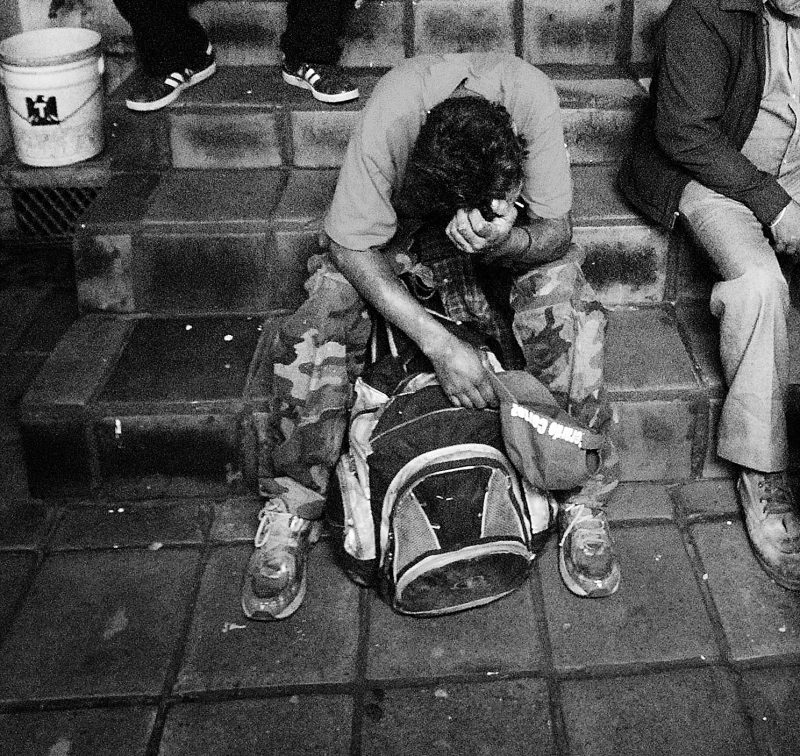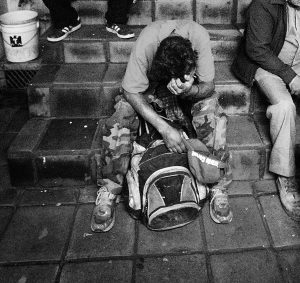by Michael Otto
Advocates working with the poor in south Auckland say the people they try to help have never had it so tough.
That was a common conclusion from two different presentations at Catholic events by Mercy Sisters Anne Hurley and Margaret Martin, who work in Wiri, and from Mangere Budgeting
Services chief executive Darryl Evans.
The sisters told a workshop at a Living Catholic Social Teaching Seminar in Ponsonby in August that the situation for the people among whom they minister is far worse than in the early 1990s.
That period was one of social strife following the application of market rents to state homes and the slashing of benefit rates in the so-called Mother of All Budgets.
“The inequality and the gap between those who have and those who don’t is so much greater [now],” Sr Margaret said.
“And children particularly are suffering greatly, far more than in our little community and nationally than in 1993,” she said.
“We saw, and we still see, children in greater numbers coming to school with no lunch, some not even having had breakfast,” Sr Anne said.
“We also saw and see children staying away from school, not because they are unwell, but because there is embarrassment and shame connected with their families, because they have
not enough food to provide for their children.”
Then there’s sickness, debt and family violence on top of it all.
As Mr Evans told a forum on inequality and family poverty on July 15 in Ponsonby, families in stress come to his service with multiple problems.
At the nub of most of those is one thing — the lack of affordable, warm, dry housing.
“When we solve the housing problem, when we put someone in a house that is affordable, it is warm, it is insulated, 99 per cent of those other issues fall away,” Mr Evans said.
But he came to the same conclusion as the sisters — things are not getting any better for the poor since Mangere Budgeting started two decades ago.
“Very sadly, 21 years later, the issues that the board and the manager at the time were dealing with are exactly the same, even though we are 20 years on,” Mr Evans said.
“In actual fact, I would go as far to say that poverty has grown tenfold in that time.
“This last year has been the most stressful in my time at Mangere Budgeting.”
Mr Evans said 60 to 65 per cent of the families “coming across my door are actually paying 65 per of their weekly income, from whatever source, to a private landlord”.
“State tenants who pay 25 per cent of their household income, actually tread water. They are not doing it well, but they are keeping their head above the waterline and they are not drowning.
“The people paying private rentals are simply drowning at a fast pace.”
Mr Evans estimates that the average low-income family he deals with is able to sustain private rental for up to four to five months.
He knows of one private rental in Mangere that turned over four families in 12 months.
Recent housing policy changes that make Work and Income responsible for managing the state house waiting list, rather than Housing New Zealand, have made things hard, Mr Evans said.
He expressed pride in the fact that his organisation had helped 158 families access state housing in the last three years.
But from April to July, after the housing policy change above occurred, Mangere Budgeting had
only been able to help three families into state houses.
“It is incredibly difficult to access affordable houses,” Mr Evans said. People tend to cram into properties, with one dwelling sometimes supporting several families.
Mr Evans spoke of one four bedroom house he knows of in Mangere, where there are 11 adults and 17 children under the one roof.
The rent is close to $600 a week, he said.
A recent Child Poverty Action Group report notes that rents in Auckland are rising about 10 per cent faster than incomes.
The housing market in south Auckland is under particular stress, the report noted. It also called for a national housing plan and the building of 1000 social housing units a year, with a particular focus on areas of high need.
“Our kids are living in conditions where they are overcrowded, the properties are cold, damp and miserable, they are more often than not uninsulated, and where families can turn on
the electricity, they are extremely hard to heat,” Mr Evans said.
To survive from day to day, families are driven to extreme measures, like putting padlocks on fridges, so their meagre food supplies will not run out.
Then there are those who fall by the wayside.
“Families are struggling to survive. They are living in south Auckland now in caravans. If you drive around Mangere, Manurewa, Otara, Clendon, you’ll see caravans and portacabinets
popping up in people’s driveways, right across south Auckland, right across the country,” Mr Evans said. Another option of last resort is expensive, poorly maintained boarding houses, which are not ideal for families, he said.
All of this leads to a type of poverty of the spirit.
“Families and individuals coming into Mangere Budgeting and actually into many other budgeting services around the country, believe that their future is bleak,” Mr Evans said.
Even their advocates struggle to see how their work has been successful.
Sr Anne said she and Sr Margaret had made many submissions to Government, speaking out for the poor.
“Not much has changed — in fact it has got worse. I don’t know how successful we have been,” she said.
Sr Margaret wondered whether they had made much of a difference too, but that doesn’t mean giving up. “We have to keep working at things together and raising the issues,” she said.
Quoting John 10:10, Sr Margaret said: “Jesus came that we might have life, and have it to the full.”
“And yet so many who are missing out on the fullness of life; it is not that everyone has to have the same fullness of life. There needs to be life that is full and adequate so that people’s basic needs are met.”
And then there is the intransigence of bureaucracy that stirs advocates to action.
Mr Evans cited one case that made his blood boil.
“Recently I have been trying to help a seven month pregnant woman who has been living in a car … in Mangere, and yet Housing New Zealand has the audacity to give her a letter stating
that technically she doesn’t qualify for a house as she has a roof over her head.
“I do not believe in injustice, and I do not believe that anybody should be sleeping in a car in this day and age.
“I believe that I have an obligation, as does each and every one of you has an obligation, to speak out about injustice wherever we see it,” he told a St Columba Centre audience.
The sisters say they will keep doing what they have done for years, provide programmes to feed and help children and families, pray and advocate — in short, see, judge and act.
Cardinal Cardijn’s philosophy has worked for them in their quarter century working among the poor in south Auckland.


Reader Interactions